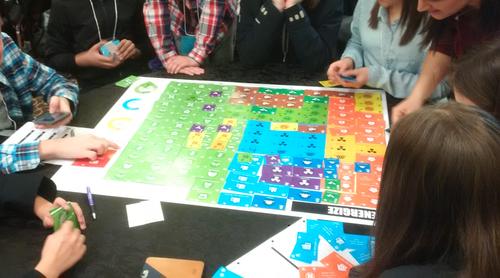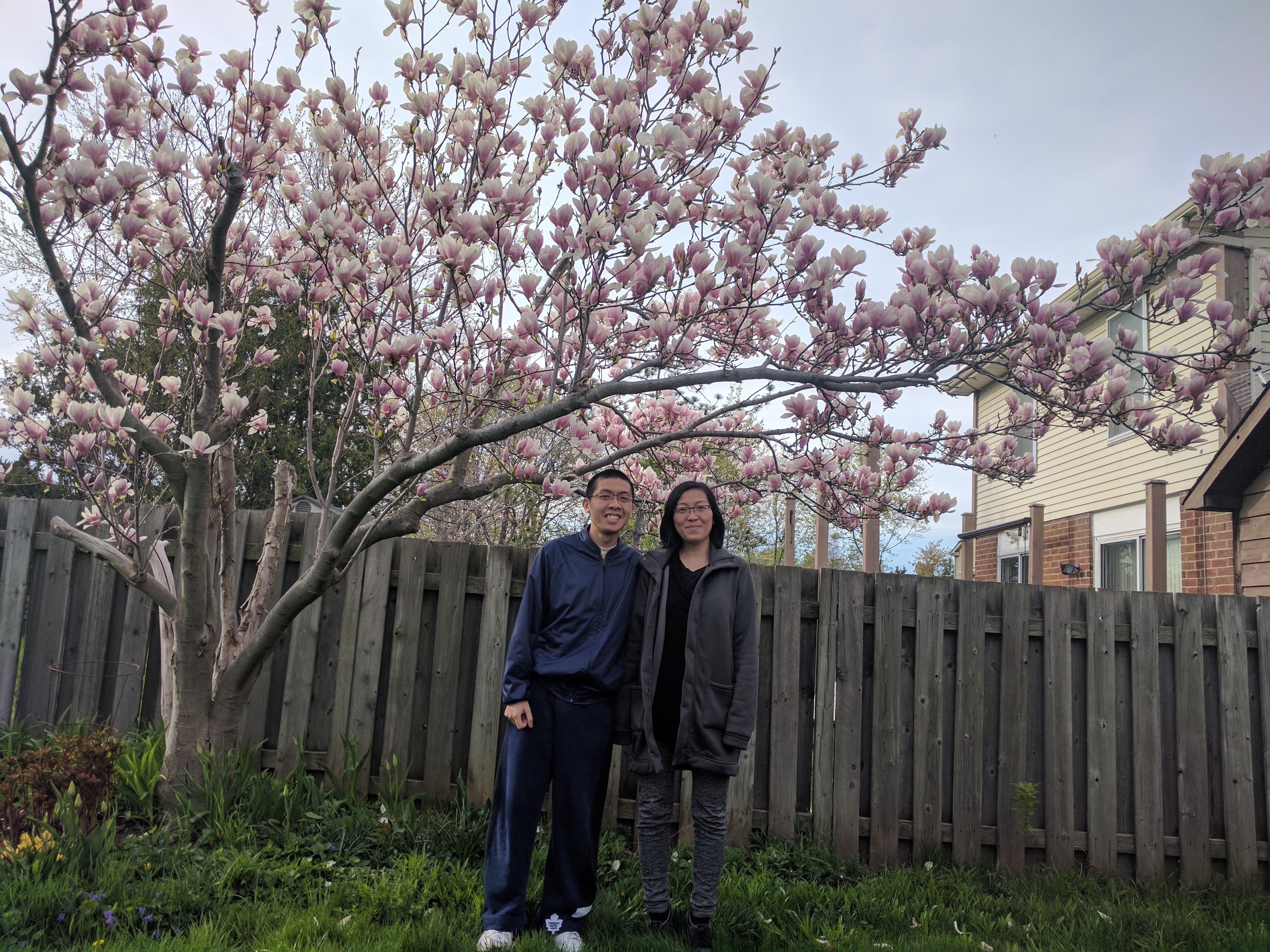Editor:
Brandon Sweet
University Communications
bulletin@uwaterloo.ca
Waterloo launches Artificial Intelligence institute today
The University of Waterloo will launch its newest institute today, which is dedicated to innovation in artificial intelligence ranging from foundational research to practical applications of AI technology.
The Waterloo Artificial Intelligence Institute will pursue research that will have societal and business impacts in a variety of areas, including healthcare, environmental protection, urban planning, manufacturing, autonomous systems and human-machine interaction. Institute members are drawn from five faculties.
President Feridun Hamdullahpur, Dean of Mathematics Stephen Watt and Dean of Engineering Pearl Sullivan will be speaking.
The official opening will include a tour of a laboratory involved in the development of AI technology, as well as a panel discussion with numerous AI researchers and industry partners.
The event begins with welcoming remarks and a laboratory tour in East Campus 4 at 2:30 p.m. before the panel discussion takes place in the Sedra Student Design Centre in Engineering 5 at 3:00 p.m.
Waterloo partners to engage elementary students on climate change

What ideas does the next generation have to address climate change in Waterloo Region? On Tuesday, the University of Waterloo’s Sustainability Office partnered with Science Outreach, ClimateActionWR, and the Waterloo Global Science Initiative to deliver a workshop for over 200 grade 7/8 students at the annual Waterloo-Wellington Science and Engineering Fair.
Student participants completed a facilitated simulation using real-world data on how Waterloo Region could shift its energy use to achieve an 80 percent greenhouse gas reduction target by 2050, in line with the provincial target. This challenged students to mix creative thinking with pragmatism, and to respond to changing scenarios.
The simulation is intended to build literacy about energy and climate change within Waterloo Region, and build in youth a deeper understanding about the breadth of opportunities available and necessary to meet emission reductions targets.
For more information about the event, visit the Sustainability webpage.
New funding opportunities for health research
Faculty members conducting research in reproductive, maternal, newborn or child health, sexual and reproductive health and rights, and/or gender equality are invited to join the Grand Challenges Canada: Bold ideas with big impact® information session on Tuesday, April 10 at 1:30 p.m. Information will be provided for faculty members with ideas and products in global health who are looking to scale their innovation to market.
This one hour presentation will introduce Grand Challenges Canada, a supporter of innovators in Canada as well as low- and middle-income countries, funding bold ideas that integrate science and technology, and social and business innovation. The session will also provide information on the following funding opportunities:
- Transition-to-Scale Program (grants up to $1 million)
- Stars in Global Health: Round 10 - Gender Equality (soon to be announced with estimated grants of up to $100,000)
Please register to attend.
If you have questions, please email Tim Weber-Kraljevski.
Remembering Daniel Hui, 1995-2018

by Nancy Hui, BASc '15. This is an excerpt of an article originally published in the Iron Warrior.
My little brother passed away earlier this month. He was 22. His name was Daniel, but I always called him Dude Boy because I heard my Grade 11 economics teacher call another student by that moniker in class and I thought it was hilarious. The nickname stuck, and to me, he was always Dude Boy.
He was born in November ‘95, at 6:18 p.m. It snowed on the way to the hospital. Unlike me, he had the good sense to be born head first. It was a good start for his life. He was the brightest, most considerate person I ever knew.
In elementary school he joined a local programming group, and in high school, he medalled multiple times in international programming competitions. Later on, he became a co-leader of the school programming group. He was a patient, thorough teacher and helped many younger students in the group to develop their skills. He emphasized understanding why a bit of code worked before using it.
My brother’s work and achievements with the high school programming group allowed him to come to the University of Waterloo on a big scholarship. My mom and I joked that he might try to take the fabled “trains course” or do a minor in combinatorics and optimization, but by his last term, he was taking all bird courses. He deserved a bit of a break after completing all his computer science degree requirements with flying colours.
My brother was also an athlete. My dad said that my brother was like a hamster when he rode circles around the running track at a nearby high school, feet pumping furiously on a single-speed kiddie bike. In elementary school and high school, he became an accomplished long-distance runner in city track and field competitions. We were so proud of him. Sometimes we called him a “good job boy.” And we always told our friends and family about how brilliant we thought he was. I think I boasted about his accomplishments more than he did.
Read the rest of Nancy Hui's tribute to her brother in the Iron Warrior
Top co-op students honoured; other notes
Six students, one from each Faculty, will be recognized for their outstanding achievements in co-operative education at a special reception today.
Speaking at the Co-op Student of the Year Awards event will be President Feridun Hamdullahpur, Executive Director of Co-operative Education Ross Johnston, and Federation of Students Vice-President, Education Andrew Clubine.
The winning students are:
- Leah Drost – Faculty of Applied Health Sciences
- Matthew Condie – Faculty of Arts
- Vincent Jack Douglas Shadbolt – Faculty of Engineering
- Aaron Buckley – Faculty of Environment
- Jiajia Yin – Faculty of Mathematics
- Emily Katherine Pass – Faculty of Science
A number of students will also receive honourable mentions. The event takes place this morning at 10:30 a.m. in Tatham Centre 2218.
The annual Waterloo Staff Conference wraps up today with its final two keynotes. After lunch, attendees will hear from Chris Bailey, author and researcher, who is called “the most productive man you’d ever hope to meet” by TED Talks, a “productivity mastermind” by Fast Company, and “a quirky and energetic guide through the productivity thicket” by the Harvard Business Review, Chris Bailey will transform how you and your audience think about productivity. The closing keynote is local entrepreneur, Jennifer Moss, the co-founder and Chief Communications Officer of Kitchener-based Plasticity Labs, a research and technology company on a mission to give 1 billion people the tools to live a happier, higher-performing life. She is an expert on the data-driven science of happiness and emotional intelligence in the workplace who shows direct correlation between a healthy, productive workplace culture and an organization’s bottom line in tracking their success.
If you have a chance, show your appreciation to Organizational & Human Development and their army of volunteers who work tirelessly to pull together this annual professional development conclave, and give a shout out to staff colleagues who designed and presented their own workshops for the enjoyment and enlightenment of their peers. Good show, everyone.
The UW Recreation Committee has group discount tickets available to a performance of West Side Story at the St. Jacob's Country Playhouse on Sunday, May 13 at 2:00 p.m. Tickets need to be purchased by Tuesday, April 10. More information is available from Shirley at schatten@uwaterloo.ca.
And finally, a notice from Information Systems & Technology that the winter 2018 issue of the IST Newsletter is now available online. Give it a read to learn more about the upcoming Workday system, the latest Portal updates, and more.
Staff Conference office closures
Organizational & Human Development will be closed on Thursday, April 5 and Friday, April 6 for the staff conference and will reopen on Monday, April 9 at 9:00 a.m.
The Science Undergraduate Office will be closed from 12:00 p.m. to 1:00 p.m. on Thursday and Friday this week, in addition to having reduced advisor availability.
Link of the day
When and where
Free Exam Fitness, Monday, April 2 to April 20.
2018 University of Waterloo Staff Conference, Thursday, April 5 and Friday, April 6, Science Teaching Complex.
Pre-examination study days, Thursday, April 5 and Friday, April 6.
Faculty Tenure and Promotion Workshops, Thursday, April 5 and Friday, April 6.
University of Waterloo Brain Day, Friday, April 6.
2018 Waterloo Economics Workshop, "Current Challenges in Environmental and Natural Resource Economics," Friday, April 6, 9:00 a.m., EIT 1015.
A (self) reflexive lens on gerontology, public lecture by CIHR VP, Prof. Anne Martin-Matthews in honour of William Forbes, founder of Waterloo’s Gerontology program. Friday, April 6, 9:30 a.m. to noon, AHS 1689.
Faculty Applying for Probationary Contract Renewal Workshop, Friday, April 6, 10:00 a.m. to 11:30 a.m., MC 5417.
HeForShe presents Health and Pre-Tenure University Women workshop, Friday, April 6, 11:30 a.m. to 1:00 p.m., MC 5501.
Faculty Applying for Promotion to Full Professor Workshop, Friday, April 6, 1:00 p.m. to 2:30 p.m., MC 5417.
Fine Arts and Computer Science presents Digital Playground opening reception, Friday, April 6, 6:00 p.m. to 9:00 p.m., Critical Media Lab, 44 Gaukel Street, Kitchener.
Codes of Conduct XDM Exhibition: Friday, April 6. 6:00 p.m. to 9:00 p.m., Critical Media Lab, 44 Gaukel St., Kitchener.
2018 University of Waterloo Brain Bee, Saturday, April 7, 9:30 a.m. to 2:00 p.m., AHS 1689.
Examinations begin, Monday, April 9.
Park and Veva Reilly Distinguished Seminar featuring Venkat Venkatasubramanian, Columbia University, "The Promise of Artificial Intelligence in Process Systems Engineering: Is it here, finally?" Monday, April 9, 11:00 a.m., E6 2024.
Intellectual Property Workshop Series, “Trademarks”, Tuesday, April 10, 12:30 p.m., DC 1304. Supported by the Centre for Bioengineering and Biotechnology (CBB), the Games Institute, and WatCo.
Grand Challenges Canada: Bold ideas with big impact® information session, Tuesday, April 10, 1:30 p.m., QNC 1506.
WaterTalks: Groundwater governance and management research: Connecting researchers and practitioners, Tuesday, April 10, 2:30 p.m., DC 1302.
Tri-Agency Open Access Policy - From Author's Rights to UWSpace, Wednesday, April 11, 10:00 a.m., DC 1568.
Staff International Experience Fund information session, Wednesday, April 11, noon to 1:00 p.m., EC5-1111.
DAAD: Research in Germany information session, Wednesday, April 11, 1:30 p.m., QNC 1506.
Master of Business, Entrepreneurship and Technology (MBET) Information Session, Wednesday, April 11, 5:30 p.m., Online Webinar.
LGBTQ+ Making Spaces workshop, Thursday, April 12, 9:00 a.m., EV3 3408.
Lectures in Catholic Experience, “Dead Man Walking: The Journey Continues,” featuring Sr. Helen Prejean, CSJ, Ministry Against the Death Penalty, Friday, April 13, 7:30 p.m., St. Jerome’s University, Academic Centre Vanstone Lecture Hall. Note: this event has been cancelled.
NEW - GRADtalks featuring Marcela Bomfin, PhD Candidate in Public Health and Health Systems and Rina R. Wehbe, PhD Candidate in Computer Science, “Gamification,” Thursday, April 12, 4:00 p.m., NH 3407.
Copyright for Teaching, Wednesday, April 18, 12:00 p.m., LIB 329 Flex Lab.
More Feet on the Ground - In Person Training, Wednesday, April 18, 1:30 p.m., Counselling Services, Needles Hall 2nd floor room 2447.
CrySP Speaker Series on Privacy featuring Joel Reardon, University of Calgary, ““Won’t Somebody Think of the Children?” Examining COPPA Compliance at Scale,” Thursday, April 19, 2:30 p.m., DC 1304.
Pursuing Peace: Stories from Home and Abroad, Friday, April 20, 6:00 p.m., Fed Hall.
Vision Science Graduate Research Conference 2018, Monday, April 23 and Tuesday, April 24, School of Optometry and Vision Science.
25-50 Year Dinner, Monday, April 23, 6:00 p.m., Federation Hall.
WICI Workshop: Leveraging Systems Approaches to Improve Human & Planetary health, Wednesday, April 25 and Thursday, April 26.
Master of Business, Entrepreneurship and Technology (MBET) Information Session, Wednesday, April 25 10:30 p.m., Online Webinar.
NEW - "CBB Seminar: Mobile Keyboard as an example of large scale novel interface based on both classic human factors and modern machine intelligence: Dr. Shumin Zhai, Google Inc." , Friday, April 27, 1:30 p.m, E5 3102.